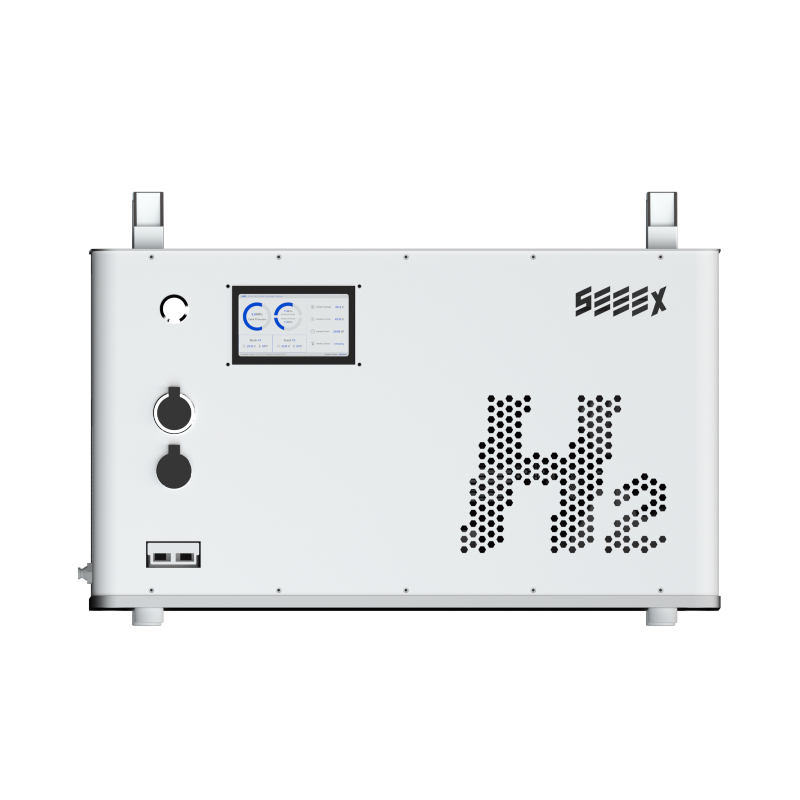What are the benefits of using hydrogen fuel cells
What are the benefits of using hydrogen fuel cells
hydrogen fuel cells
In the context of the current global energy crisis and increasingly severe environmental problems, it is particularly urgent to find a sustainable and clean form of energy. In this era of challenges full of opportunities, hydrogen fuel cells, as an eye-catching energy technology, are gradually becoming a vivid chapter in solving energy and environmental problems. Hydrogen fuel cells not only inject new vitality into the energy field, but also become one of the key driving forces for the green energy revolution due to its unique advantages. From high-efficiency energy conversion to zero-emission environmental protection, from multi-field applications to innovations in energy supply, the benefits of hydrogen fuel cells are quietly changing our outlook on future energy.

The benefits of adopting hydrogen fuel cells as a form of energy are manifold, some of the main advantages are as follows:
1. Zero emission: In the process of using hydrogen fuel cells to generate energy, the only emission is water vapor, and no harmful gases and greenhouse gases will be produced. This makes hydrogen fuel cells a truly zero-emission form of energy, helping to reduce air pollution and climate change.
2. High energy density: Hydrogen has a very high energy density, which can provide more energy than traditional fossil fuels of the same volume. This gives hydrogen fuel cells an advantage in some applications that require high energy density, such as transportation.
3. Efficient conversion: Hydrogen fuel cells generate electricity by reacting hydrogen with oxygen, and the conversion efficiency is relatively high. Compared with traditional internal combustion engines, hydrogen fuel cells have higher energy conversion efficiency and can use energy more efficiently.
4. Renewable energy integration: Hydrogen can be produced by electrolyzing water, and the electricity for electrolyzing water can be provided by renewable energy (such as solar energy, wind energy). This makes hydrogen fuel cells an important storage method for renewable energy, which solves the problem of high volatility of renewable energy.
5. Long cruising range: In the field of transportation, hydrogen fuel cell vehicles have the advantage of long cruising range. Compared with pure electric vehicles, the refueling time of hydrogen fuel cell vehicles is much shorter than the charging time, and can obtain longer cruising range.
6. Fast refueling: The hydrogen refueling time of hydrogen fuel cell vehicles is relatively short, and usually only takes a few minutes to complete refilling, which is more convenient than traditional charging time.
7. Multi-field applications: Hydrogen fuel cells can be used not only in the field of transportation, but also in households, industries, commercial buildings and other fields to promote green transformation in many fields.
8. Relieve energy pressure: As global energy demand continues to grow and fossil fuel reserves are gradually decreasing, hydrogen fuel cells, as a form of renewable energy, can help alleviate energy supply pressure.

Although hydrogen fuel cells have many advantages, they also face some challenges, such as hydrogen production and storage issues, high cost, and infrastructure construction. However, these challenges are expected to be gradually overcome as technology advances and investments increase. In general, the use of hydrogen fuel cells as an energy form will help achieve sustainable energy development, reduce environmental impact, and make important contributions to the future green energy system.
 English
English Español
Español Português
Português русский
русский français
français 日本語
日本語 Deutsch
Deutsch Tiếng Việt
Tiếng Việt Italiano
Italiano Nederlands
Nederlands ไทย
ไทย Polski
Polski 한국어
한국어 Svenska
Svenska magyar
magyar Malay
Malay বাংলা
বাংলা Dansk
Dansk Suomi
Suomi हिन्दी
हिन्दी Pilipino
Pilipino Türk
Türk Gaeilge
Gaeilge عربى
عربى Indonesia
Indonesia norsk
norsk اردو
اردو čeština
čeština Ελληνικά
Ελληνικά Українська
Українська فارسی
فارسی български
български Latine
Latine slovenský
slovenský Eesti Keel
Eesti Keel Српски
Српски Esperanto
Esperanto Afrikaans
Afrikaans icelandic
icelandic Беларус
Беларус Hrvatski
Hrvatski Bosanski
Bosanski Maori
Maori Монгол хэл
Монгол хэл Hmong
Hmong Somali
Somali Точик
Точик O'zbek
O'zbek Hawaiian
Hawaiian Philippine
Philippine

Hydrogen Fuel Cell Vehicle Power Supply: Revolutionizing Clean Transportation
As the automotive industry continues to seek sustainable alternatives to traditional gasoline and diesel engines, hydrogen fuel cell vehicles (FCVs) are emerging as a promising solution. Powered by hydrogen fuel cells, these vehicles offer a clean, efficient, and sustainable alternative to conventional internal combustion engine vehicles. The power supply system of a hydrogen fuel cell vehicle plays a crucial role in determining its performance, efficiency, and environmental benefits.
Read MoreApplication market of hydrogen fuel cells: welcoming the future of clean energy
With the increasing global demand for clean energy, hydrogen fuel cell technology, as a green and environmentally friendly energy solution, is gradually penetrating into multiple industries. Its zero-emission and high-efficiency characteristics make its application prospects in transportation, energy storage, industry and other fields more and more broad. The following is the current application status and future potential of hydrogen fuel cells in major markets.
Read MoreHydrogen Energy System: Advantages for a Sustainable Future
As the world transitions toward cleaner, more sustainable energy sources, hydrogen energy systems are emerging as a powerful solution with significant advantages. With growing concerns about climate change and the need for carbon reduction, hydrogen energy offers a promising path to decarbonize industries, transportation, and power generation. Here are some of the key benefits of hydrogen energy systems.
Read More